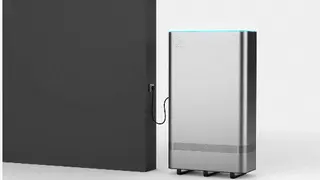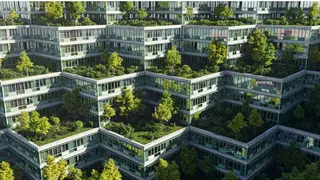Given that India is in the high water-stressed zone, recycling and treatment of wastewater is a crucial issue that needs to be urgently addressed. To put it in context, consider this: Our major cities generate an estimated 38,354 million litres per day (MLD) of sewage. But our sewage treatment capacity is only 11,786 MLD. The story is the same when it comes to industrial wastewater. Only around 60 per cent of it is treated and that too which emanates from large-scale industries.
Economical system
It is in this backdrop that a deep tech start-up like Indra Waters is making a difference. It makes economical, compact and smart water treatment systems for recycling domestic and industrial wastewater for non-potable reuse.
The company has been recognised for its efforts. Earlier this year, it was one of winners of the 2023 Global Freshwater Challenge conducted by the World Economic Forum and HCL at Davos. Now, Indra is in the 2023 APAC Cleantech 25 list, which means that it has attracted the attention of market experts for its innovation and patented technologies. It has also received a grant from ACT Foundation to expand its footprint.
Incubated at IIT Bombay, Indra’s technologies are making inroads in the industrial segment. Its projects include sewage and chemical effluent treatment for reuse in gardening and cooling tower blowdown at Godavari Biorefineries Ltd., Sakarwadi, Maharashtra where 75 per cent sludge reduction and footprint reduction has been achieved.
Indra is also helping the textile industry reduce its water footprint. Testifies Sanjay Singh, CEO at Sands Synergy Pvt Ltd: “We are working with the Indra Team on commissioning a 100 KLD ETP at our textile unit in MIDC Rabale, Mumbai. Their technology is suited for the textile industry.” Bengaluru’s jeans manufacturer Tauruz is also using the technology for 75 per cent more water recovery and significant cost reduction.
Wastewater treatment
Apart from industry, Indra is addressing treatment of domestic sewage discharge and lake wastewater. At Kudikunta Lake in Hyderabad, it has managed 65 per cent sludge reduction with water being reused in irrigation. “We are driving the world away from use of harmful chemicals and over reliance on biological systems towards an electrically driven energy-efficient approach,” says Amrit Om Nayak, Co-founder and CEO of Indra.
He explains how conventional plants take over eight months to build and deploy while Indra can install six water treatment plants in 45-60 days. It’s USP is its patented technologies and software.








Comments
Comments have to be in English, and in full sentences. They cannot be abusive or personal. Please abide by our community guidelines for posting your comments.
We have migrated to a new commenting platform. If you are already a registered user of TheHindu Businessline and logged in, you may continue to engage with our articles. If you do not have an account please register and login to post comments. Users can access their older comments by logging into their accounts on Vuukle.